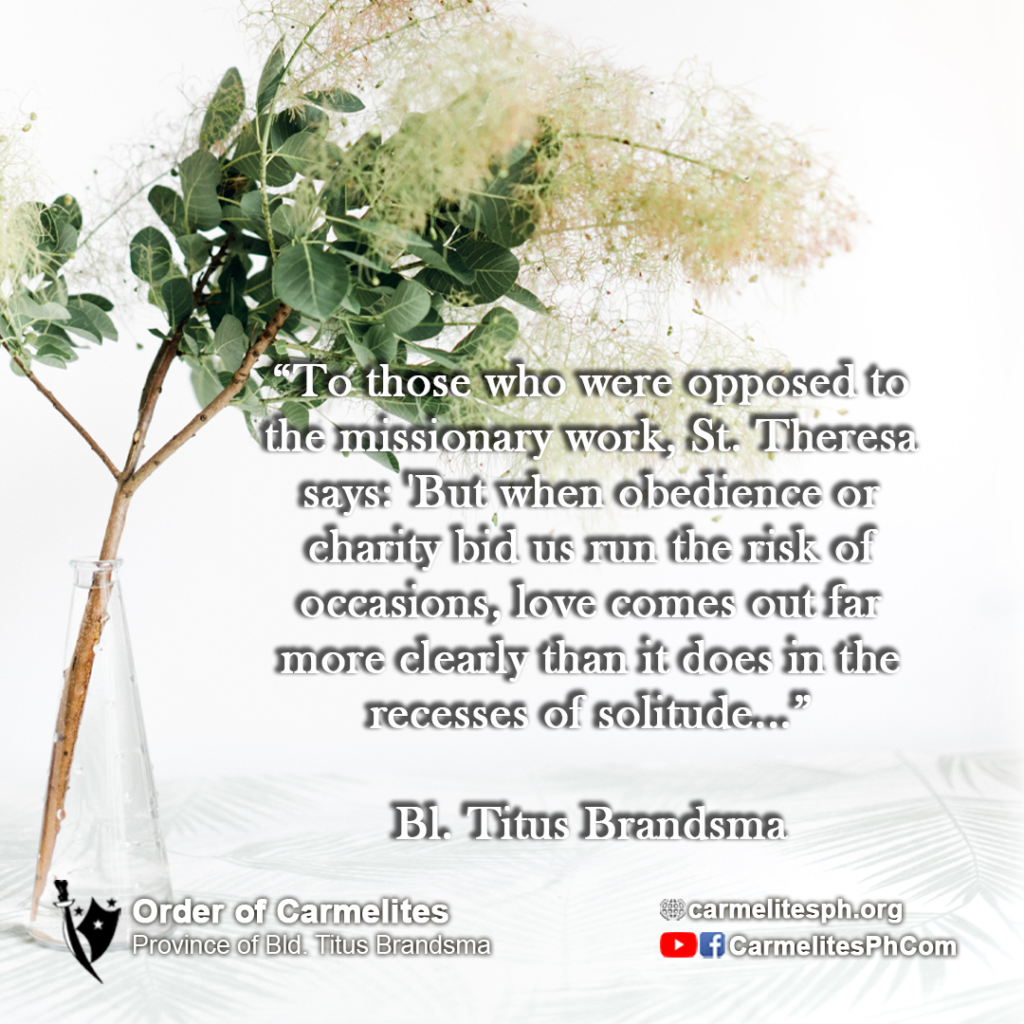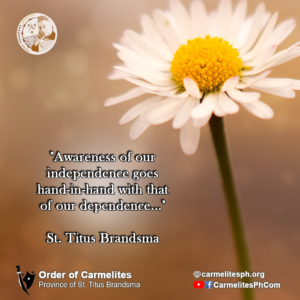
“It is difficult to say when that necessity arises, but the Rule does suggest limitations when it speaks of justa occupatio as a reason for deserting the life of solitude for a time. There have been times, especially in the first centuries of the establishment of the Order in the West, when urgent needs of the Church were neglected for the sake of the contemplative ideal. At other times the spirit of contemplation has been lost in too great activity. The combination of these two lives has presented a difficult problem even to St. Teresa, who in her reform finds it difficult to draw a dividing line. We find St. John of the Cross frequently leaving his cell to preach the Gospel to the poor. At the very beginning of the Reform, we find a majority of the reformed Order considering the work of the missions so urgent that missioners were sent out to establish cloisters in the lands where the practice of the contemplative life was impossible. To those who were opposed to the missionary work, St. Theresa in her Book of the Foundation says: ‘In solitude, some may say there are fewer occasions for offending God and purity is more easily kept. But when obedience or charity bid us run the risk of occasions, love comes out far more clearly than it does in the recesses of solitude… Believe me, we make much greater gain and that beyond comparison, even if we commit more faults and suffer some slight losses’.”
Bl. Titus Brandsma
What do you think of this quote? Write it on the comment section.
📸 Gaelle Marcel | Unsplash


